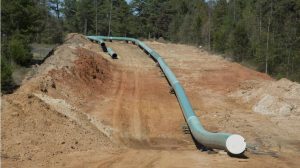By Gary Swick, FOFR President
Advocacy and giving the Fox River a voice were the founding principles of Friends of the Fox River. Sometimes this  concerns local issues, like the current public comment period for Lake County’s stormwater ordinance.
concerns local issues, like the current public comment period for Lake County’s stormwater ordinance.
Others are national in scope like the current White House rollback of 50 years of environmental protection measures. Whatever the scale, water issues are important and involve empowering the public to exercise their voice with a government representative or at election time. Even defending a fair election process seems to be under attack. The democratic process is designed to protect what we value.

In the Fox River Watershed, we value our river and its tributaries. Here are a few things to ponder from July legislative activities. Illinois is an energy-hungry state and geographically situated to be home for many miles of pipelines. This month the Dakota and Keystone pipeline projects were stalled and the Atlantic Coast pipeline project was abandoned.
 The pipeline projects are both a local and national water-quality threat. Our local authority and advocate is Save Our Illinois Land (SOILS). The Dakota Access Pipeline received national attention starting in 2016, when the Standing Rock Sioux Tribe assembled an unprecedented coalition of 200 American Indian Tribes and countless allies who engaged in non-violent civil disobedience in North Dakota and faced-down brutal police violence. This incident is an example of the necessity of a unified public voice to protect the environment.
The pipeline projects are both a local and national water-quality threat. Our local authority and advocate is Save Our Illinois Land (SOILS). The Dakota Access Pipeline received national attention starting in 2016, when the Standing Rock Sioux Tribe assembled an unprecedented coalition of 200 American Indian Tribes and countless allies who engaged in non-violent civil disobedience in North Dakota and faced-down brutal police violence. This incident is an example of the necessity of a unified public voice to protect the environment.
The public expects the U. S. Environmental Protection Agency (EPA) to develop science-based regulations that can be enforced through legislation. The EPA has undergone an overhaul in the past three years that has been politically motivated. On July 13, the final rule modifying Clean Water Act (CWA) Section 401 water quality certification requirements went into effect to promote consistency and regulatory certainty in the certification process. Also, in July, the EPA announced $6 billion in new funding for water infrastructure projects. In addition, there are loans of nearly $12 billion for water infrastructure and to create 25,000 jobs. This all sounds good, but it is more focused on economic stimulation than environmental protection.
On July 15th , President Trump unilaterally weakened one of the nation’s bedrock conservation laws, the National Environmental Policy Act (NEPA), by limiting public review of federal infrastructure projects to speed up permits for  freeways, power plants and pipelines. This is probably one of the worst environmental protection actions from the current administration in the long list of over 100 environmental law roll backs. Trump said, “We are reclaiming America’s proud heritage as a nation of builders and a nation that can get things done.”
freeways, power plants and pipelines. This is probably one of the worst environmental protection actions from the current administration in the long list of over 100 environmental law roll backs. Trump said, “We are reclaiming America’s proud heritage as a nation of builders and a nation that can get things done.”
We are fortunate to have much local concern for environmental protection in the Fox River Watershed. But protection does not come easy, and threats to the environment are ever present. Educating ourselves, sharing what we learn, and voting in representatives that also hold our values is essential to keep on fixin’ our Fox.



